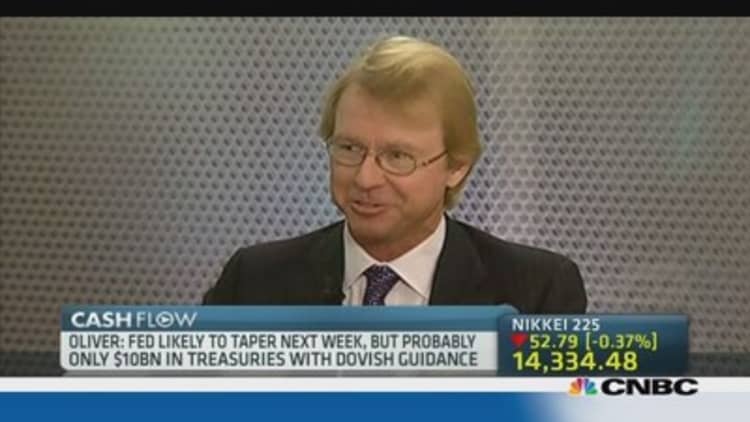Indonesian shares have been among the hardest-hit by recent market volatility, but some pockets still offer value, analysts said.
"Years ago, it was way too easy to be bullish on Indonesia," Wellian Wiranto, Asian investment strategist at Barclays, told CNBC, citing the country's consumption and commodity stories and its stable government. "Now, it's too easy to be bearish."
The Jakarta Composite has climbed more than 200 percent since the start of 2009, compared with the S&P 500's around 82 percent rise over the same period, driven in part by expectations of continuing growth from the region's consumer story amid rising incomes and an emerging middle class.
But amid the recent stock market convulsions, analysts have been expressing doubts about whether that consumption story has gotten expensive.
Indonesian shares are still down around 17 percent from their May peak, touched before concerns that the Federal Reserve would soon begin to taper its asset purchases sparked volatility in global markets. But the index has recovered around 13 percent from its August trough; it is currently down around 2.6% for the year. Indonesia's currency, the rupiah, is among the worst-performing globally; it has lost around 20 percent of its value against the U.S. dollar this year.
Some fund flows have returned to the country, with $78 million in equity inflows in the week ended Sept. 25, up from $14 million the previous week, according to data from ANZ.
(Read more: Indonesia: Is it time to jump back in?)
"We still like the fundamentals. We still like the story of the labor market and the consumption force coming in. A quarter billion people is a lot of people in any kind of economic climate," Wiranto said.
Barclays is sticking with a "nuanced" approach, seeking defensive, liquid big caps, particularly in the telecommunications and consumption segments, Wiranto said.
"Some of those have been selling off quite a bit," although there's been some recovery since the Federal Reserve's September decision to delay tapering its asset purchases, he noted.

Others are also cautious about stepping into the market.
"Four months into the bear market, still earnings risk and macro uncertainties suggest that it may be too early to play on a recovery," said Erwan Teguh, CIMB's head of research in Indonesia, in a report.
(Read more: Why Indonesia could be worse off than India)
He has a "neutral" call on Indonesia, expecting the market to remain rangebound. But he noted the country has low household debt, fast-rising incomes and a universal healthcare program set to begin in 2014. He expects consumers' spending propensity to rise despite higher interest rates and a weaker currency.
He likes defensive stocks including drug-maker Kalbe Farma, energy company Perusahaan Gas Negara and telecom Telekomunikasi Indonesia. He sees deep value in property companies Alam Sutera Realty, Ciputra Development and Summarecon Agung. Among plays he considers good companies with reasonable valuations are oil-palm plantation owner Astra Agro Lestari, Bank Mandiri, department store operator Ramayana Lestari and cement maker Semen Indonesia.
Credit Suisse advises positioning for "complex" outcomes in Indonesia.
"Indonesia's favorable long-term growth story remains intact, but, in our view, it was never quite as positive as most people thought," it said.
(Read more: Emerging markets party as Fed keeps punch bowl)
It expects economic growth and earnings forecasts will be lowered as problems with its large current account deficit, high inflation and high dependence on portfolio inflows will persist through 2014.
But it also expects global economic growth may surprise positively, providing a fillip to Indonesia's market.
It views consumer plays as overpriced.
"While we believe in the long-term growth story of increasing consumption we prefer to play it through banks, telecoms and selective pure consumer plays," such as retailers Erajaya and Electronic City and auto play Astra International, it said.

